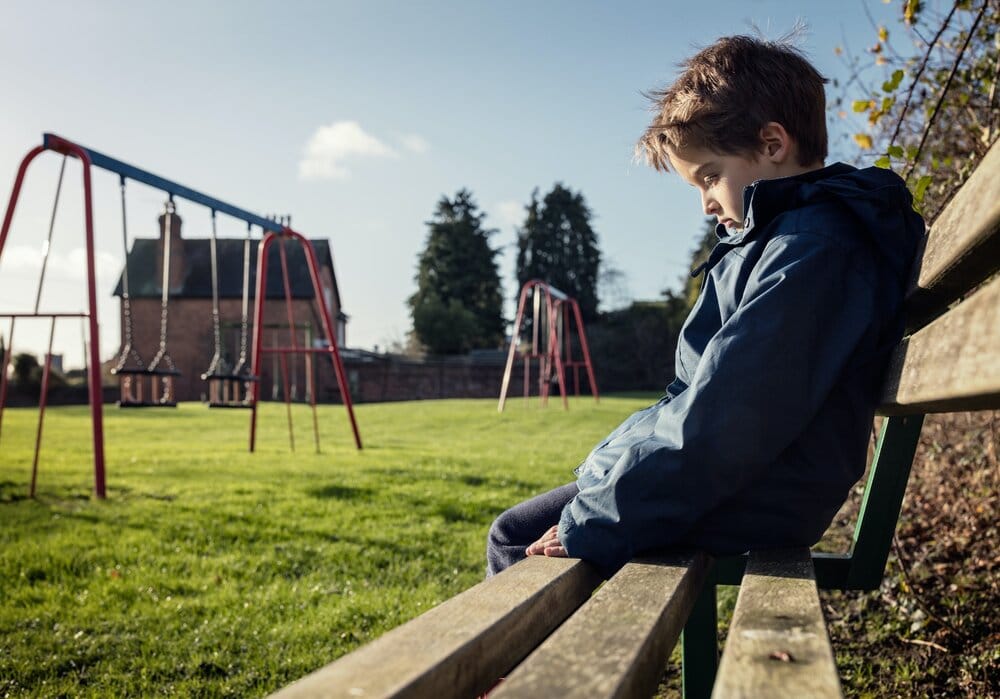Many parents will be worried about their child’s risk of catching coronavirus, but experts have warned they should also be concerned about their kids’ post-lockdown mental health.
A new review suggests children and young people are likely to experience high rates of depression and anxiety long after lockdown ends, concluding that lonely youngsters might be three times more likely to develop depression in the future, and that the mental health impact of the pandemic could last for up to 10 years.
Clinical psychologist Dr Maria Loades, from the University of Bath, who led the review of more than 60 studies on topics including isolation, loneliness and mental health for young people aged four-21, says: “From our analysis, it is clear there are strong associations between loneliness and depression in young people, both in the immediate and the longer term.
We know this effect can sometimes be lagged, meaning it can take up to 10 years to really understand the scale of the mental health impact the Covid-19 crisis has created.”
Children are likely to experience high rates of depression and anxiety long after the current lockdown ends according to the authors of a new review into the long-term mental health effects of lockdown.
Dr @MariaLoades in @BathPsychology explains more ⤵️https://t.co/wa7cwPPdCA pic.twitter.com/x0KcSbO7hS
— University of Bath (@UniofBath) June 1, 2020
And it’s not just experts worried about the impact of the pandemic on children’s mental health – a study of parents and carers by the charity YoungMinds found 67% were concerned about the long-term impact of coronavirus on their child’s mental health.
The charity is running the Beyond Tomorrow campaign, calling on the Government to take action now to limit the long-term impact of the pandemic on young people’s mental health.
“We know many children and young people have struggled to adjust to the changes brought about by the coronavirus pandemic,” says Tom Madders, YoungMinds’ director of campaigns.
“Whether that’s because they miss friends, have struggled to manage without the structure of school, or have lost their coping mechanisms or professional support, the crisis has put added pressure and anxiety on many young people.
“Because schools have been closed and some GP surgeries have been harder to access, fewer young people than usual are being referred for mental health support – even though it’s likely there has been an increase in the number who are struggling to cope.
As we start to emerge from the pandemic, some may find it hard to readjust after being in isolation, or are coming to terms with a lot more uncertainty about their future. If you’re worried about how your child is coping, trust your instinct and reach out for help.”
We have created 2 infographics to support primary school pupils #schoolsreopeninguk – 1 for school staff, 1 for parents & carers. Based on @EmergingMindsUK webinar, they translate academic evidence into practical tips. Designed to be printed, please RT! https://t.co/moBHSibOHd pic.twitter.com/CnbLAn1G5d
— Charlie Waller Memorial Trust (@CharlieWtrust) May 29, 2020
According to YoungMinds, these are some of the signs that a child or young person’s mental health may have been affected by the pandemic…
1. Persistent changes in mood or behaviour: Keep an eye out for your child persistently exhibiting different moods or behaviours. Try keeping your family routine as consistent as possible, children can really benefit from stability of routine when they are struggling with their feelings or emotions.
2. Withdrawal: Children struggling with their mental health may find it difficult to communicate. Try to open up conversations about what they’re involved and usually interested in.
3. Joylessness: Young people may find no joy or contentment in things they usually enjoy.
4. Poor sleep: There may be a change in things like your child’s sleeping or eating habits.
5. Lack of focus: Children and young people may be finding it hard to concentrate.
6. Lack of interest: They may have no interest in school, if they’ve returned, or in play, or spending time with people.
7. Boredom: They may complain of feeling bored or lonely, even when they have friends. Try and talk to your child, and dedicate some quality time that you can spend together and do something they enjoy. This is a great way to help your child open up and reassure them that you’re always there.
8. Irritableness: They may be more irritable and moody than normal.
9. Sadness: Children may be tearful, or simply look sad or withdrawn.
10. Lack of confidence: They may have less self belief than normal.
As a parent, be part of the solution, suggests YoungMinds. There are many things you can do to support your child, like helping them plan, problem solve, or develop hope for the future. And “don’t blame yourself,” stresses Madders. “It’s so easy to do, but it’s not your fault.”
Contact your GP or school about the warning signs if things don’t improve. You can also contact the YoungMinds parents helpline on 0808 802 5544.





